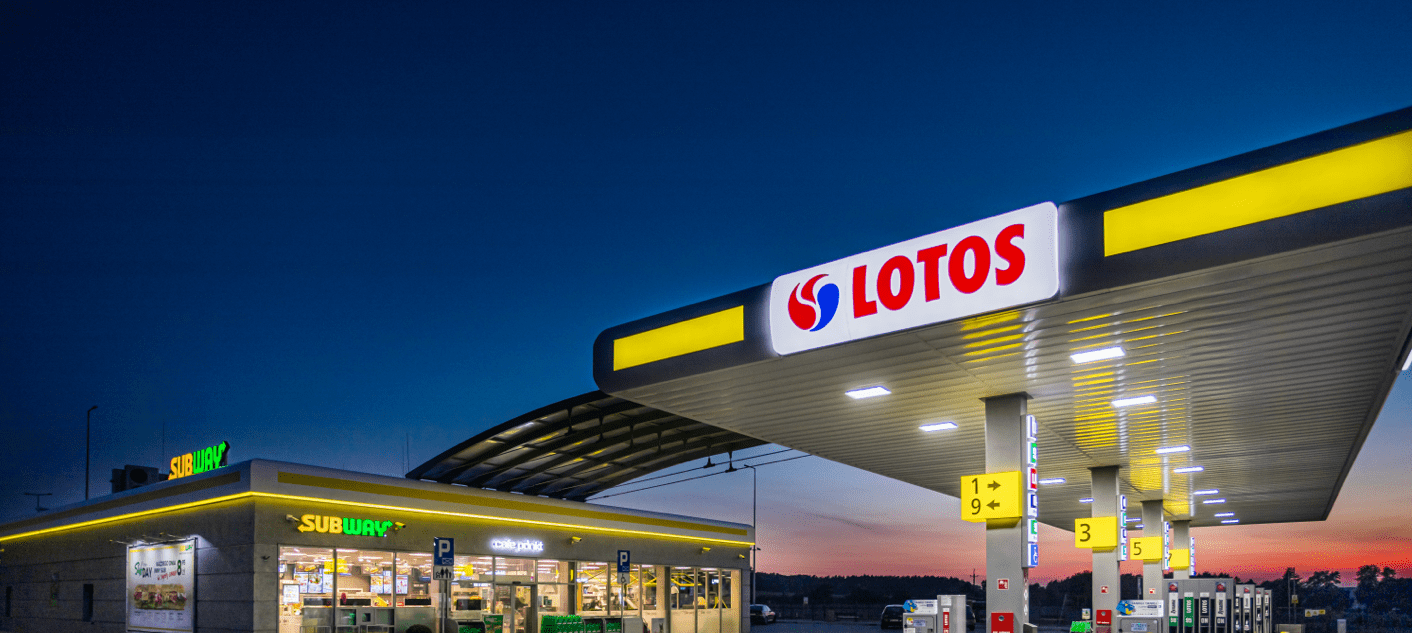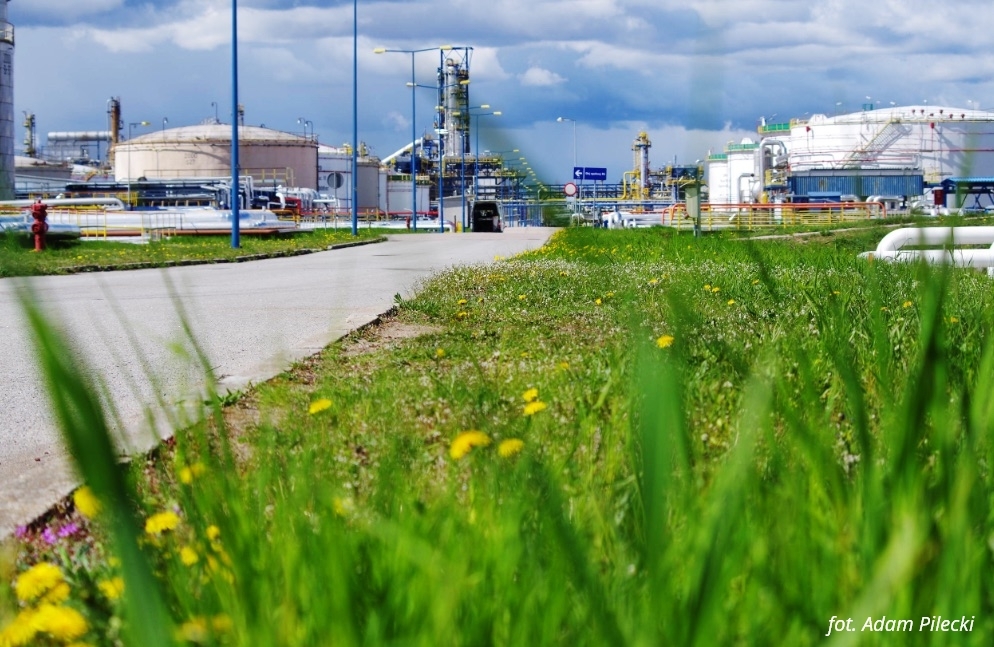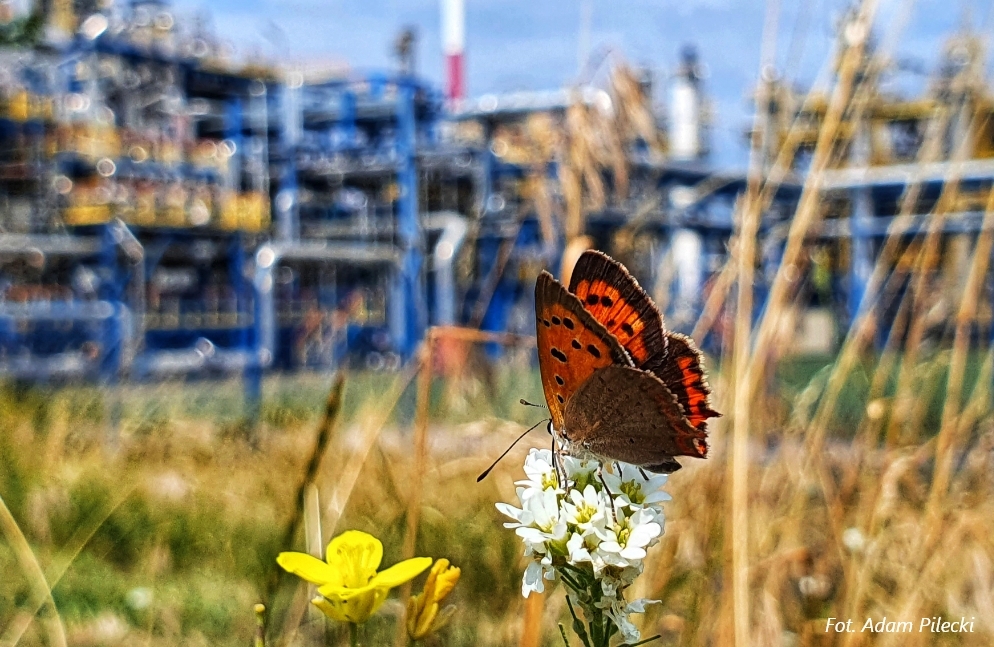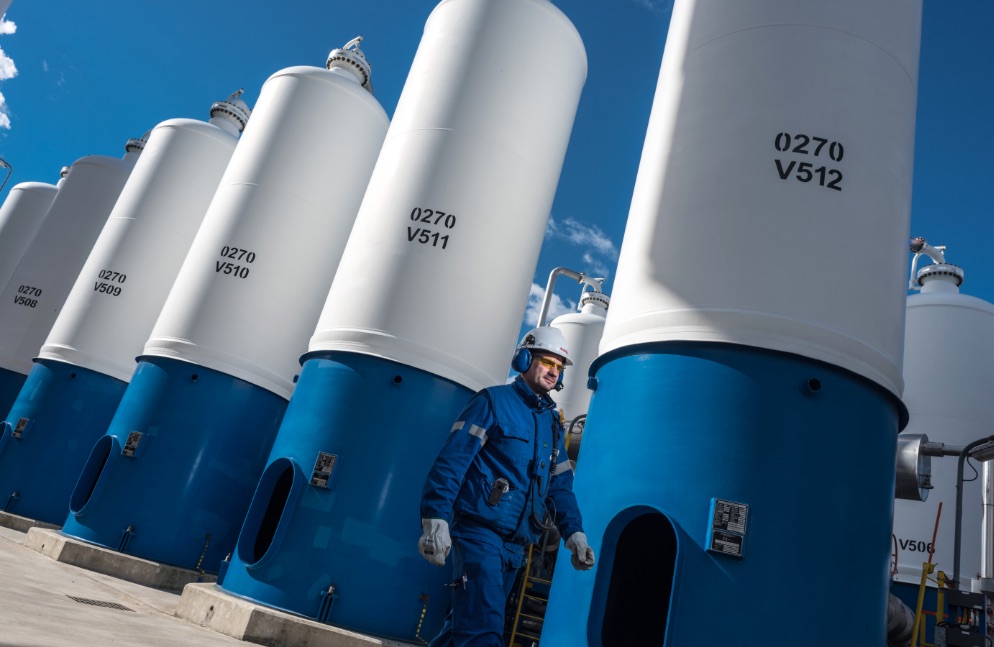| Revision of the provisions of the Renewable Energy Directive (RED) revision of the directive will increase the obligation relating to the share of renewable energy in transport, leading to an increase in the use of low-emission fuels
|
Opportunity: possibility to enter new markets for advanced biofuels or hydrogen |
Risk: increase in operating costs |
Undertaking investment projects (including within the scope of advanced biofuels, hydrogen) aimed at reducing emissions and increasing the share of energy from renewable sources.
Monitoring and active participation in the legislative process (presenting the results of analyses and positions, proposing regulatory solutions advantageous to the Grupa LOTOS), both at the EU and national level.
|
| Revision of the Energy taxation Directive (ETD) — the drafted changes to the fuel and energy taxation system will result in raising the minimum tax thresholds and diversifying them in such a way that low-emission alternative fuels are as cheap as possible compared to petroleum fuels. |
Opportunity: due to the planned and ongoing development projects in the LOTOS Group and the development of competences in this area, it is possible to take advantage of the opportunity arising from increased interest in low-emission alternatives, such as electricity, hydrogen or fuels with higher content of advanced bio-components — due to their preferential taxation. |
Risk: gradual decline in demand for traditional fuels |
Undertaking investment projects within the scope of alternative fuels and biofuels, which will be subject to preferential taxation.
Monitoring and active participation in the legislative process (presenting the results of analyses and positions, proposing regulatory solutions advantageous to the Grupa LOTOS), both at the EU and national level
|
| Introduction of EU regulations concerning sustainable aviation fuels, the so-called ReFuelEU Aviation — the initiative concerns development of sustainable (low-emission) aviation fuels (SAF) |
Opportunity: generating demand for sustainable aviation fuels, which means opportunities to enter a new, probably high-margin market. |
Risk: the drafted regulations will result in high costs of mandatory SAF production (if this option is ultimately included in the regulations). The high cost stems, inter alia, from the limited availability of raw materials and the costly certification procedure for such fuels. |
Analysis of the possibility of entering the emerging market for sustainable aviation fuels.
Monitoring and active participation in the legislative process (presenting the results of analyses and positions, proposing regulatory solutions advantageous to the Grupa LOTOS), both at the EU and national level.
|
| Revision of the Alternative Fuels Infrastructure Directive — it concerns the establishment of mandatory targets for the development of alternative fuels infrastructure at the EU level. The aim is to increase the number of electric car charging stations, hydrogen, CNG and LNG fuelling stations and liquefied natural gas (LNG) fuelling stations in ports for LNG-fuelled vessels. |
Opportunity: the development of the electromobility segment offers opportunities in terms of offering charging services and the development of non-fuel business (longer charging time of electric vehicles vs. vehicles with combustion engines means more time spent by customers at stations). |
Risk: if the assumptions are fulfilled, the result may be an increasing number of electric vehicles, which is likely to reduce demand for traditional fuels, especially petrol, as a consequence.
In addition, costs may have to be incurred on the mandatory construction of new infrastructure. |
Investments in alternative fuel infrastructure projects, e.g. construction of a fast charging network: LOTOS Blue Trail and Pure H2 hydrogen fuelling stations.
Monitoring and active participation in the legislative process (presenting the results of analyses and positions, proposing regulatory solutions advantageous to the Grupa LOTOS), both at the EU and national level.
|
| Revision of the EU ETS — the drafted amendments aim to accelerate the pace of increase in CO2 emission allowance prices and consequently stimulate greater investments in zero-emission technologies |
Opportunity: an increase in profitability of innovative decarbonisation projects |
Risk: a consistent increase in emission allowance prices should be expected, which will mean increasing costs for the Grupa LOTOS. Currently, the LOTOS Group emits approx. 1.9 million tonnes of CO2 per year. A portion of the emissions is eligible for free allowances, which will, however, be phased out over time. |
Investments in projects that improve energy efficiency and reduce CO2 emissions, e.g. zero-emission hydrogen production in the electrolysis process for refineries (LOTOS Green H2 project).
Monitoring and active participation in the legislative process (presenting the results of analyses and positions, proposing regulatory solutions advantageous to the Grupa LOTOS), both at the EU and national level.
|
| The EU hydrogen strategy and legislation on the promotion of hydrogen use. |
Opportunity: The strategy indicates that hydrogen production in zero-emission technologies will be one of the EU’s key economic priorities. Due to the fact that the LOTOS Group already has competences in this respect, there is an opportunity to develop on a new, forward-looking market. Green hydrogen applications will be much wider than the refinery sector on its own, so the potential of this business area seems to be very high. |
Risk: There is a possibility of excessively strict criteria being established for the recognition of energy for hydrogen production as renewable and introduction of binding targets for the share of hydrogen without adequate tools on the demand side. |
Investments in projects involving zero-emission production and use of hydrogen (LOTOS Green H2, Pure H2).
Monitoring and active participation in the legislative process (presenting the results of analyses and positions, proposing regulatory solutions advantageous to the Grupa LOTOS), both at the EU and national level.
|
| Introduction of a legislative package concerning sustainable funding (so-called taxonomy). |
Opportunity: projects considered to be sustainable in terms of climate will benefit from preferential funding. |
Risk: the financing and insurance of projects that do not qualify as sustainable in terms of climate (“green”) will be severely hampered and much more expensive than before.
In addition, large enterprises (over 500 employees) will be required to identify and determine whether their activities comply with the directive.
|
Implementation of projects consistent with the assumptions of taxonomy, i.e. aimed at, among others, reducing greenhouse gas emissions or increasing the use of renewable energy.
Monitoring and active participation in the legislative process (presenting the results of analyses and positions, proposing regulatory solutions advantageous to the Grupa LOTOS), both at the EU and national level.
|
| The National Reduction Target (NCR) — sets the minimum fuel greenhouse gas emission reduction throughout the fuel lifecycle. Amendment to the Act on the fuel quality monitoring and control system — provides for a change in the manner of charging the penalty for non-accomplishment of the NCR target (absolute value instead of reference to the prices of emission allowances) and almost twofold increase of the penalty.
In addition, the amendment provides for confirmation of the applicability of the NCR target beyond 2020, easier joint settlement of liquefied gas (LPG) and establishment of a register of documents confirming the achievement of greenhouse gas emission reduction in the extraction segment (upstream emission reduction — UER).
|
Opportunity: the possibility to use a substitution fee, reduction of the risk of application of UER certificates (reduction of emissions in the extraction sector) and facilitation of the joint settlement of LPG after the amendment enters into force. |
Risk: additional costs for the LOTOS Group resulting from the extension of the obligation beyond 2020 and the increase in the penalty level |
Pursuit of the maximum reasonable level of objective achievement — contacts with UER traders, negotiations with entities marketing LPG for the purpose of joint settlement, use of bio-components offering the maximum reduction possibilities.
Ongoing contact with the national regulator, presenting the results of analyses and positions, proposing regulatory solutions advantageous to the LOTOS Group.
|
| The National Indicative Target (minimum share of renewable energy in transport), implementation of the revised RED directive (the so-called RED II) by amending the Act on bio-components and liquid biofuels. RED II provides, inter alia, for an increased obligation in terms of the minimum share of renewable energy in transport (NCW) to 14% (compared to 10% at present) and a minimum share of advanced biofuels at 3.5% by 2030.
|
Opportunity: entry on the new market for advanced biofuels, for which demand in the EU should increase.
|
Risk: Increase in operating costs as a result of increased requirements for the share of renewable energy in transport (e.g. the need for using more expensive, advanced biofuels, possible penalties). |
Pursuing a maximum, reasonable level of achievement of the NCW target through purchase and use of bio-components.
In addition, if economically justified, it is possible to apply co-hydrogenation. Analytical works on the use of bio-hydrogen from biomethane are also ongoing.
Ongoing contact with the national regulator, presenting the results of analyses and positions, proposing regulatory solutions advantageous to the LOTOS Group.
|
Amendment to the Act on energy efficiency — aims at extending the catalogue of entities obliged to fulfil the obligation to improve energy efficiency.
The affected entities will have to demonstrate appropriate reduction in the energy supplied to end customers every year. |
|
Risk: an increase in costs due to the necessity to achieve the efficiency objectives set by the Act, which will most likely require the payment of the substitution fee and purchase of so-called white certificates. |
Due to the limited tools, it will be necessary to purchase white certificates or pay the substitution fee. |







